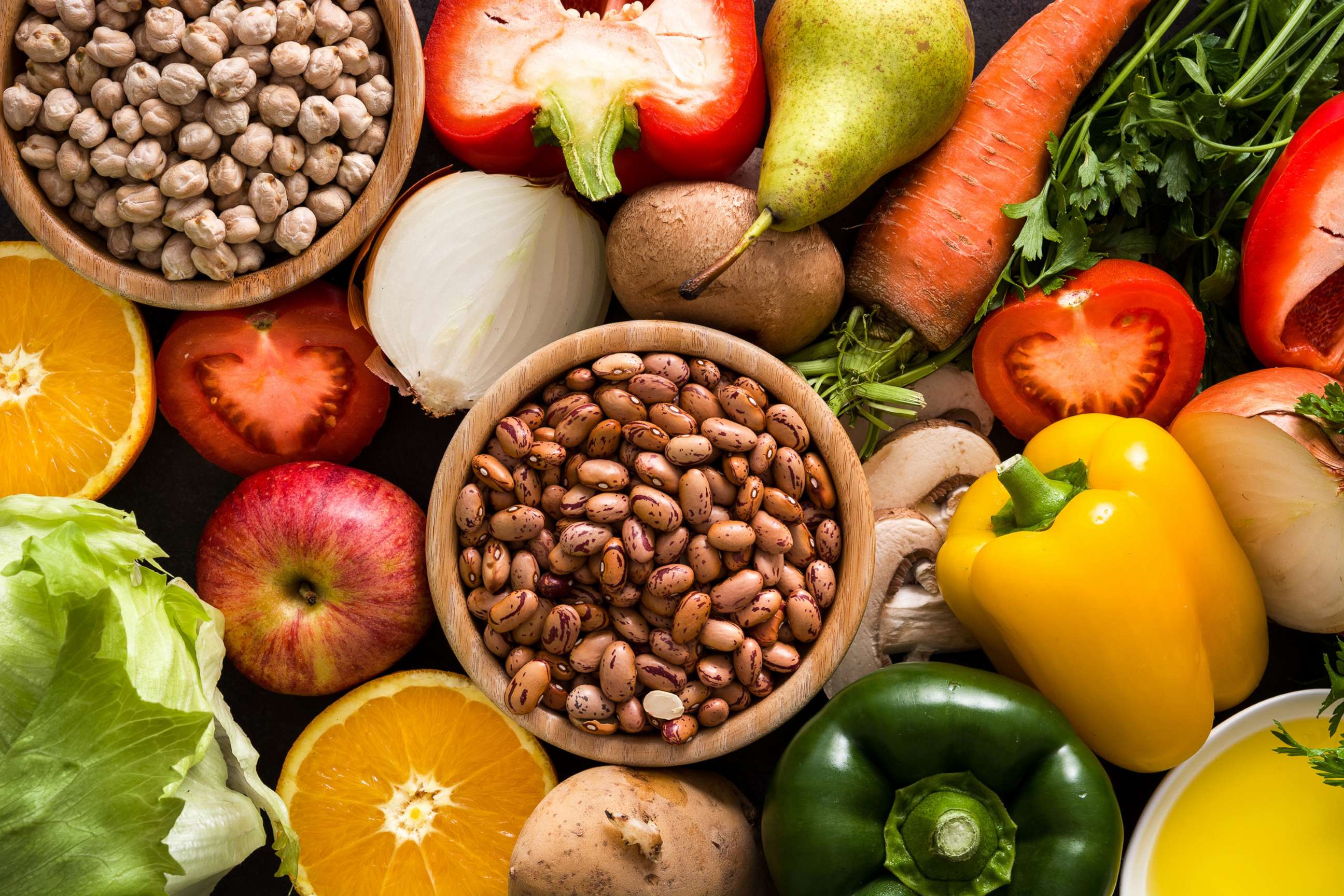Are American adults getting smarter about what they eat?
A recent study shows that US Adults are improving their diets by increasing the amount of high-quality carbohydrates, plant proteins, and polyunsaturated fats they eat. That means they’re cutting down on the “low-quality’ carbohydrates they eat.
Unhealthy eating habits, of course, can hurt your health. These include -- but are not limited to -- a higher risk for high blood pressure, high cholesterol, diabetes, and some cancers.
“Obesity is related to 13 types of cancers, so there is an implication for cancer risk,” Dr. Fang Fang Zhang, an associate profession at the Friedman School of Nutrition Science and Policy at Tufts University and an investigator in this study, said in an interview with ABC News. She added that low-quality carbohydrates contribute to obesity.
The CDC highlights a healthy eating plan, as recommended by the Dietary Guidelines for Americans 2015-2020. They recommend a balanced diet that focuses on whole grains, lean meats, fish, eggs, poultry, nuts, fruits, vegetables, and fat-free/low-fat dairy products.
In this study, researchers in Boston examined the dietary habits of over 43,000 US adults. Data was collected from multiple cycles of the National Health and Nutrition Examination Survey which looked at American’s diets.
What percentage is carbohydrates, or proteins, or fat? Look at the imbalance: low-quality carbohydrates account for 42% of the calories we consume daily, and only 9% of our calories are from high-quality carbohydrates. Believe it or not, that’s better than it used to be. Data from 1999 showed that low-quality carbohydrates made up over 45% of our diets while high-quality carbohydrates only accounted for about 7% of our diets.
Zhang explained, “our findings suggest that Americans are improving their diets overall and have made some progress in some areas. However, the progress that we have made has not yet brought us to where we want to be. We still consume a large proportion of total calories from low-quality carbohydrates.”
Liz Weinandy, MPH, RD, is the lead outpatient dietician at Ohio State University’s Wexner Medical Center. She explained, “high-quality carbohydrates are less processed, like millet, quinoa, or fruit.” Low-quality carbohydrates are more processed and, as a result, “you strip them of their vitamins and nutrients,” she added. Weinandy was not involved in the study.

Why are people changing what they eat?
Zhang believes “these are related to increased public awareness of health benefits related to whole grains and the health risks associated with added sugar.”
Weinandy agrees. “Research is really starting to clearly show how bad sugar is in our bodies. People are trying to avoid it.” She has even noticed changes in her daily practice. She reports seeing more people adopting low-carbohydrate diets like the ketogenic diet and eating more whole-food, plant-based diets.
One reason, they believe, is the impact of policy change. Zhang shared, “We have some movements in policy to reduce added sugar consumption. Several cities have enacted a tax on sugar. Also, the FDA now requires disclosure on added sugars in nutritional labels on packaged foods.”
A recent study even evaluated the effects of a “sugar tax.”
However, there is still more that we need to do.
The changes the study found were not universal for all groups of people. Zhang shares, “people with lower education and income levels, had a lower improvement in diet.” She believes, “we need to make efforts to increase availability and affordability in low resource communities.”
One way to combat this may be through adding resources through the Supplemental Nutrition Assistance Plan (SNAP) for healthier eating. Weinandy shares that the Environmental Working Group also has resources for eating well on a budget.
Another target would be focusing on refined or processed grains. “Highly processed packaged foods have more low-quality carbohydrates” and are eaten more often because of their convenience, says Zhang. “I think this is an area we need to focus on in the future.”
The overall changes are promising but Americans will need to continue to improve our diets. It’s one of the keys to “live longer and have a better quality of life,” says Weinandy.
Tulsie N. Patel, MD is a Chief Resident in Psychiatry from Dallas, TX, working with the ABC News Medical Unit.




